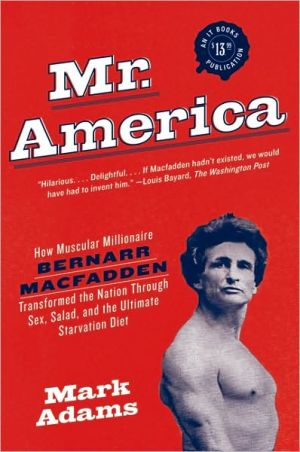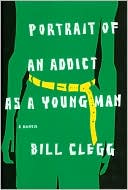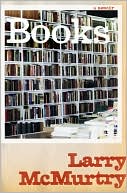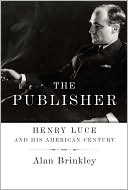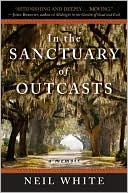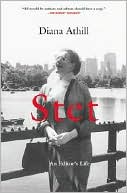Mr. America: How Muscular Millionaire Bernarr Macfadden Transformed the Nation Through Sex, Salad, and the Ultimate Starvation Diet
During two feverish decades between the world wars, Bernarr Macfadden did more to educate the world about healthy eating, alternative medicine, regular sexual activity, and exercise than anyone in history. His disciples included Upton Sinclair and Charles Atlas; among his employees were Walter Winchell, Ed Sullivan, and Eleanor Roosevelt. He launched the worst newspaper in U.S. history, founded a whole-grain utopian community in the New Jersey suburbs, trained fascist cadets for Mussolini,...
Search in google:
During two feverish decades between the world wars, Bernarr Macfadden did more to educate the world about healthy eating, alternative medicine, regular sexual activity, and exercise than anyone in history. His disciples included Upton Sinclair and Charles Atlas; among his employees were Walter Winchell, Ed Sullivan, and Eleanor Roosevelt. He launched the worst newspaper in U.S. history, founded a whole-grain utopian community in the New Jersey suburbs, trained fascist cadets for Mussolini, and came within a hair's breadth of being elected senator from Florida—running on a physical fitness platform. Yet today few have heard of this larger-than-life entrepreneur who changed American society. In Mr. America, Mark Adams illuminates Macfadden's captivating, ambitious, and unparalleled life. The New York Times - J. Courtney Sullivan Bernarr Macfadden laid the groundwork for America's current obsession with diet and exercise and our fascination with tabloid news, yet you've probably never heard of him. In this impressive biography, Adams8230;provides historical context throughout and tells the story with journalistic remove, resisting much commentary, even as the reader is busy filling the margins with exclamation points.
Mr. America\ How Muscular Millionaire Bernarr Macfadden Transformed the Nation Through Sex, Salad, and the Ultimate Starvation Diet\ Chapter One\ Little Orphan Bernie\ \ Winston Churchill has said that all the famous men of his acquaintance were the products of an unhappy childhood. Macfadden cannot remember having had even a moderately cheerful day before he was twenty.\ ...Robert Lewis Taylor, New Yorker, October 14, 1950\ \ No one in the tiny Ozark town of Mill Springs, Missouri, was likely to have been surprised when William McFadden decided to drink himself blind one day in 1873. McFadden, a Union Army veteran with a menacing face and bushy beard, was a sometime farmer with only three interests in life: hunting deer, drinking corn whiskey, and playing the horses. In between these pursuits he would sometimes endure a few hours with his family, which consisted of his young wife, Mary, and their three children, the newborn baby Alma, three-year-old Mary, and four-year-old Bernard.\ Gregarious in his few sober moments, William McFadden was transformed by alcohol into a monster. Years later, his famous son would recall the unhappy cycle of life in the two-room McFadden home. William would begrudgingly earn a few dollars from farm labor, invest his earnings in whiskey and long shots at the racetrack, then return home to the farmhouse on the Black River to beat his family.\ What surely did surprise the residents of Mill Spring on that day in 1873 was that Mary had decided her marriage was over. She was not a strong woman, and at age twenty-seven she was thirteen years younger than her large, powerful husband. Once already she had run away to her parents' house with her two eldest children to escape William's abuse and give birth to Alma. This time, though, Mary had reason to believe she was leaving for good. She was ill with tuberculosis, a near-certain death sentence.\ Mary packed up the children and crossed the Black River in the family's small skiff for the last time, pulling hand over hand on a rope strung across the water. She moved back in with her parents, the Millers, who lived in Ironton, forty miles upstate. A penitent William occasionally sobered up long enough to make the journey north and lurk outside the Millers' log fence, in hopes of rekindling his relationship with his wife. Instead, Mary sued for divorce. Bernard and his sisters never saw their father again. Within a year of their separation, he was dead from delirium tremens.\ The Ozarks were a particularly bleak place in the 1870s. Missouri was bogged down in Civil War debt and battered by an economic recession, one of the worst in U.S. history. Missouri had, essentially, endured its own civil war. A large chunk of the state was taken and held by Confederates until 1862, and while Missouri nominally owed its loyalty to the Union, an estimated twenty-five to thirty thousand of its men fought for the Southern cause, including Frank and Jesse James, whose daylight robberies would terrorize the region into the 1880s. Its already poor roads were trampled by soldiers on the march, its draft horses had been conscripted by armies on both sides, and its rich farmland, where countless anonymous battles took place, needed to be reclaimed after years of disuse. Mill Springs was hit by a cholera epidemic the same year as Mary's final escape to Ironton. Two summers later, the state's crops were devastated by a plague of grasshoppers.\ Against this backdrop, little Bernard grew into something of a mama's boy, a delicate child whom the local boys took malicious glee in dunking mercilessly in the local rivers. The earliest known photograph of Bernard, taken at around age four, shows a passive child with a weak mouth. He appears to be waiting for someone to take him by the hand and lead him somewhere. Perhaps he'd had a premonition of the childhood odyssey that lay before him.\ Five years of suffering began at around age seven, when Bernard, who remembered being ill for most of his childhood, was vaccinated for smallpox in the manner standard at the time...by having a scab from a smallpox lesion applied to a cut in his arm. The price of immunity in his case was six months in bed from blood poisoning.\ One morning not long after Bernard had recovered, his mother took him to St. Louis. They were met at the Mississippi River docks by a strange gentleman. Mary explained to her son that the man was going to take him away on a steamship. She did not mention a return trip. Long after the boy had grown up and reinvented himself as Bernarr Macfadden, he recalled the resulting scene as being "torn screaming and clawing and kicking in a frantic agony of fear" from his mother's arms. The man managed to pull Bernard from Mary and lead him toward the wharf, but the boy broke free and ran back to his mother, tears running down his face. Mary told her eight-year-old son the cold truth. Hopeless and nearly destitute, wasting away from late-stage tuberculosis, she no longer had the energy or means to care for a growing boy. She was sending him off to the cheapest boarding school she could find.\ Bernard wouldn't learn much at the school, whose name is unknown but which Macfadden later referred to as an "orphan's home" and "the Starvation School." In his opinion, the gruel-fed orphans in Oliver Twist were overstuffed gluttons compared to his classmates, one of whom took him aside upon his arrival and whispered, "You'll find out. They never feed us nothin'." In truth, the headmaster did feed them something, and that something was peanuts. In the years before George Washington Carver alchemized goobers into everything from soap to axle grease, the legumes were sold as hog feed at about a dollar a ton. If a boy at the Starvation School found himself in possession of a nickel, it was often invested in more peanuts, which would be consumed "shells and all," Macfadden said. Were one of the students blessed with the bounty of an entire apple, "no boy ever asked for the core, for there was no core to give away."\ Mr. America\ How Muscular Millionaire Bernarr Macfadden Transformed the Nation Through Sex, Salad, and the Ultimate Starvation Diet. Copyright © by Mark Adams. Reprinted by permission of HarperCollins Publishers, Inc. All rights reserved. Available now wherever books are sold.
\ Louis Bayard"Hilarious. . . . Delightful. . . . If Macfadden hadn’t existed, we would have had to invent him."\ \ \ \ \ Elizabeth Gilbert"This book is a delightful and colorful piece of true Americana. Enjoy every twist and turn of it."\ \ \ Thomas Mallon"A witty, perfectly pitched re-creation of a long-forgotten and madly outsized figure. Adams will make you laugh with fresh information on every page, and in this age of flabby, overlong biography, his delightful production has a leanness that Macfadden himself would approve of."\ \ \ \ \ John Hodgman"Imagine if Rupert Murdoch, Jack LaLanne, and Dr. Andrew Weil all got together and had a baby, then raised that child on wheat germ and 100 pushups a day. Only such a prodigy could give you a sense of the sheer eccentric magnificence of Bernarr Macfadden."\ \ \ \ \ A.J. Jacobs"When you read this book, you’ll be astonished you hadn’t heard of Bernarr Macfadden—one of the most fascinating, brilliant, bizarre, and influential characters in American history. I know I was. I want to thank Mark Adams for bringing him to light in this great biography."\ \ \ \ \ Baron Baptiste"Bernarr Macfadden was the ultimate life coach and one of the great influencers of his generation. He set the stage for the world of health and self help as we know it today. Mr. America is required reading for anyone committed to increasing the quality of their life."\ \ \ \ \ Men’s Journal“Every decade ushers in a new ‘revolutionary’ exercise fad (or three). But as Mr. America points out, most of them probably owe a nod to Bernarr Macfadden and his magazine Physical Culture.”\ \ \ \ \ The Los Angeles Times"An entertaining, enlightening read that . . . gives Macfadden his overdue legacy. . . . Adams deftly wrestles this messy, Herculean life into shape. . . . Even from the grave, it seems, Bernarr Macfadden continues to educate and shape America."\ \ \ \ \ The New York Times Book Review"In this impressive biography, Adams chronicles how, in the first half of the 20th century, Macfadden opened some of the country’s original health food restaurants and communes, assembled early bodybuilding shows, and built a $30 million magazine empire."\ \ \ \ \ The Onion"Terrific. . . . A briskly paced, fascinating biography. . . . Mr. America reads like the strangest F. Scott Fitzgerald novel never written. . . . An entertaining look at the journey from meat and potatoes to veggies and soy milk."\ \ \ \ \ Booklist"In the first half of the twentieth century, Bernarr Macfadden was central to American popular culture. . . . Bravo to Adams for enabling the rediscovery of this phenomenal American."\ \ \ \ \ Entertainment Weekly"As recounted by Adams (who self-tested some of Macfadden’s occasionally extreme advice about fasting and exercise), the improbable saga of this eccentric self-made guru shows that our mania for fad diets and get-fit-quick schemes has deep, and deeply weird, roots. Grade: A-"\ \ \ \ \ Details"With such a great eccentric as his subject, Mark Adams shrewdly gets out of the way (and gives Macfadden’s extreme weight-loss regimens a try."\ \ \ \ \ Men's Journal"Every decade ushers in a new ‘revolutionary’ exercise fad (or three). But as Mr. America points out, most of them probably owe a nod to Bernarr Macfadden and his magazine Physical Culture."\ \ \ \ \ The St. Petersburg Times"Mr. America is a must read for those interested in health and fitness."\ \ \ \ \ The Wall Street Journal"A remarkable story. . . . It is to Mark Adams’s great credit that, in Mr. America, he has rescued from obscurity a man whose influence is still felt in this country more than a century after he muscled his way onto the national scene."\ \ \ \ \ Louis BayardWelcome to the fine and not-so-fine madness of Bernarr Macfadden: bodybuilder, health evangelist, tabloid king, smut merchant, redbaiter, millionaire, aspiring president. And, for all his contradictions, a figure so intensely American that the title of Mark Adams's hilarious biography seems almost like underkill…Delightful as it is, Mr. America may actually be the rare biography—very well, the only biography within the past two decades—that runs too short.\ —The Washington Post\ \ \ \ \ J. Courtney SullivanBernarr Macfadden laid the groundwork for America's current obsession with diet and exercise and our fascination with tabloid news, yet you've probably never heard of him. In this impressive biography, Adams8230;provides historical context throughout and tells the story with journalistic remove, resisting much commentary, even as the reader is busy filling the margins with exclamation points.\ —The New York Times\ \ \ \ \ Publishers WeeklyIn this entertaining, briskly written biography, journalist Adams rescues from obscurity the history of Bernarr Macfadden, a man whose life would seem almost implausible if it were not true. An orphan born in 1869 Missouri and raised in abject poverty, Macfadden's discovery of the power of exercise led him to start a wildly successful fitness magazine, Physical Culture, that championed a range of health programs that today would be known as "alternative therapies"-as well as introducing muscleman Charles Atlas (an immigrant from Calabria, Italy, named Angelo Siciliano) to the world-creating the template for every fitness magazine published today. But Adams also carefully delineates how Macfadden's growing passion for publishing turned his various magazines into a $30-million empire. Central to this success was True Story, devoted entirely to nonliterary, factual stories told in the first person. And while his New York Evening Graphic was less successful than competing tabloids, Macfadden can claim to be the first person who hired and spotlighted the gossip columns of Walter Winchell and Ed Sullivan-creating another huge impact on American culture to which Adams gives proper due. (Mar.)\ Copyright © Reed Business Information, a division of Reed Elsevier Inc. All rights reserved.\ \ \ \ \ Library JournalJournalist Adams provides a biography of one of the more amazing people whom few of us today have heard of. Bernarr Macfadden (born Bernard McFadden; 1868-1955), a sickly child, was a victim of child abuse, abandoned by his parents, and raised by a series of foster parents who treated him poorly. Yet he cured his own tuberculosis, developed revolutionary ideas about dieting and weight lifting, created America's first health magazine, established a publishing empire, started a utopian society, ran for the U.S. Senate, and developed a popular breakfast cereal. Macfadden, a hero to bodybuilders, centered his health philosophy on three ideas: the potential downside of vaccination, the human body's ability to survive on a meager diet, and the importance of efficient, hard work. Throughout his lifetime, Macfadden fought against prudishness, medicine, corsets, muscular inactivity, alcohol consumption, cigarettes, and white bread. Adams also describes (in the appendix) how he personally went through the physical health regimen prescribed by Macfadden. Adams's writing style and the fascinating life of Macfadden make this book hard to put down. Highly recommended for all libraries.\ —Tim Delaney\ \ \ \ \ \ Kirkus ReviewsThe long life and strange times of the forgotten Father of Physical Culture. New York magazine columnist Adams spins a lively yarn in this biography of pioneering health-and-fitness guru Bernarr Macfadden. In the first half of the 20th century, he was one of the most famous men in America, a confidant of Rudolph Valentino and Eleanor Roosevelt celebrated and scorned in equal measure for his radical theories-which earned him the undying enmity of the American Medical Association-and his tabloid publishing empire. In brisk prose, Adams charts the remarkable trajectory of sickly orphan Bernard McFadden (he changed his name to make it sound more distinctive), a singularly dynamic and driven character devoted to the idea that a healthy mind, body and spirit are moral imperatives and attainable only through severe calorie restriction and grueling, regular physical exercise. With the passion of a true zealot, Macfadden promulgated his theories through his vastly influential magazine, Physical Culture, and an ever-expanding empire of health farms and sanitariums. His efforts profoundly influenced the national psyche, birthing the multibillion-dollar fitness industry that flourishes to this day. Equally fascinating is Macfadden's publishing legacy, which included the ahead-of-their-time salacious tabloids The New York Evening Graphic (Walter Winchell and Ed Sullivan were on the writing staff) and True Story (the source of most of Macfadden's fortune). He also discovered and promoted legendary bodybuilder Charles Atlas. Adams paints Macfadden as a bizarre, outsized figure: Married four times, he philandered well into old age; a multimillionaire, he dressed like a hobo and regularly walked dozens ofmiles per day through the streets of New York . . . barefoot; he practiced his theories of eugenics on his children; and, after repeatedly failing to attain high political office, he founded his own religion, "Cosmotarianism."A funny, informative history of a true American eccentric and the national preoccupation with health and fitness. Agent: Daniel Greenberg/Levine Greenberg Literary Agency\ \
